Kamala Harris stares down yet another path with little precedent
It is far from clear that Harris, as her party’s presidential nominee, would satisfy the many Americans who say they are looking for an alternative to Biden and Trump.
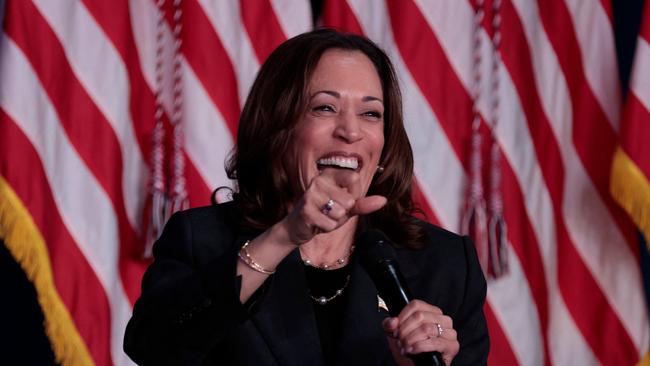
With President Biden’s exit from the race, Vice President Kamala Harris is now seen as the Democrats’ likely pick — and Biden’s choice — to take on Donald Trump, offering her a chance to make history as the first woman of colour on the top of a major party ticket.
The 59-year-old Harris has been thrust into a political maelstrom with little modern precedent. The last time a president chose not to run for re-election was in 1968, when Lyndon B. Johnson opted out.
Harris has earned endorsements from Biden and other Democrats, including former President Bill Clinton and 2016 presidential nominee Hillary Clinton. As she continues to rally support from her party, Harris isn’t guaranteed the nomination and will have to earn the required delegates to take Biden’s place at the party’s convention in August.
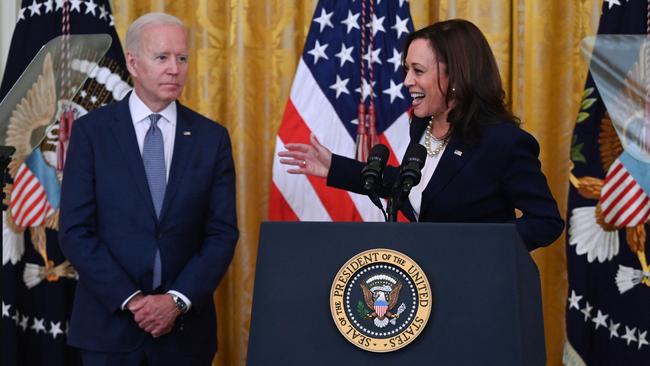
With Biden’s backing, she has a leg up over the governors and lawmakers who may jump in to the contest or be recruited by donors to compete.
“My very first decision as the party nominee in 2020 was to pick Kamala Harris as my Vice President. And it’s been the best decision I’ve made,” Biden wrote on X. “Today I want to offer my full support and endorsement for Kamala to be the nominee of our party this year. Democrats — it’s time to come together and beat Trump. Let’s do this.”
Harris said Sunday (Monday AEST) that she would run. “I am honoured to have the President’s endorsement and my intention is to earn and win this nomination,” she said in a statement.
Biden and Harris spoke several times ahead of the president’s announcement on Sunday, according to a person familiar with the discussions.
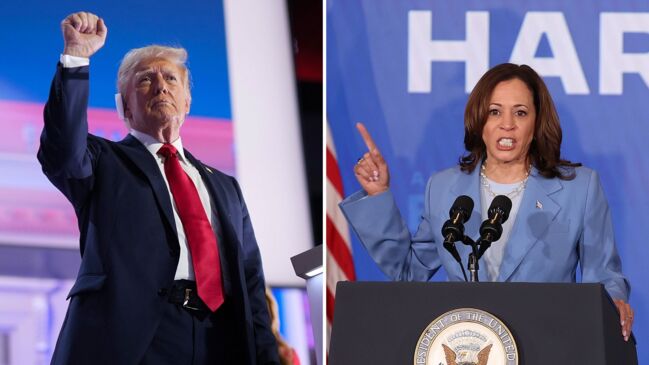
Several Democratic lawmakers and groups coalesced around Harris, but some party leaders have held off, including former Speaker Nancy Pelosi (D., Calif.), House Minority Leader Hakeem Jeffries (D., N.Y.), Senate Majority Leader Chuck Schumer (D., N.Y.) and former President Barack Obama.
“We will be navigating uncharted waters in the days ahead,” Obama said. “But I have extraordinary confidence that the leaders of our party will be able to create a process from which an outstanding nominee emerges.”
The Democratic National Committee said in the coming days it would “undertake a transparent and orderly process” to nominate a candidate to challenge Trump. Jaime Harrison, the DNC’s chairman, said the process would be “governed by established rules and procedures of the Party.”
Democrats were already planning to hold a virtual nomination in early August. The party could pick its replacement nominee then, ahead of the Democratic National Convention in Chicago, which is slated to begin August 19. Democrats are split over whether they should formally pick their nominee at the convention or before it, with some expressing concern over the ticket making the ballot in Ohio. And some other states have deadlines for ballot access beginning later in August, putting the party at risk if it doesn’t act.
“We really do need enough time to ensure that the filings are done correctly in advance of any deadline,” said Dana Remus, a former White House counsel to Biden who is advising the DNC, during a Friday meeting of the convention’s rules committee.
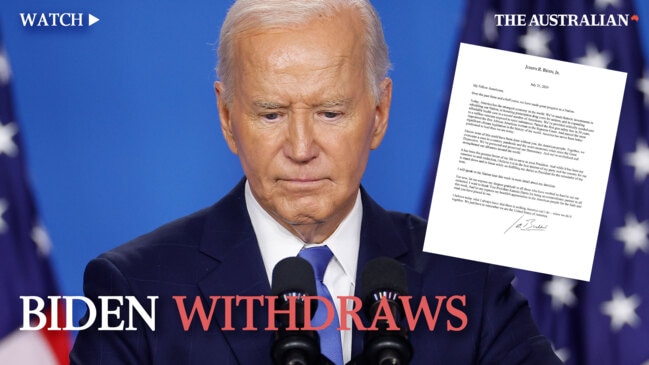
The panel, which partially oversees the nomination process, is expected to meet again this week. Members of the convention’s rules committee have been told they will be given 48 hours advance notice, so any meeting is unlikely to happen before Tuesday.
Harris was also picking up support among current and former DNC members who are likely to have sway within their state delegations at the convention. A letter endorsing Harris organised by DNC member Michael Kapp of California listed nearly 80 members from around the country Sunday evening.
Another big advantage for Harris: She would be able to use the money already raised by Biden’s campaign committee. The Biden-Harris campaign ended June with $US96m ($143m) in the bank, behind the $US128m reported by Trump and his new running mate, JD Vance, according to filings Saturday with the Federal Election Commission.
Many Democrats have said that Harris is popular enough in the party — particularly among women and Black voters — and that casting her aside could cause resentment and division. The daughter of Indian and Jamaican immigrants, Harris has campaigned extensively on college campuses, in cities and before women and minority voters.
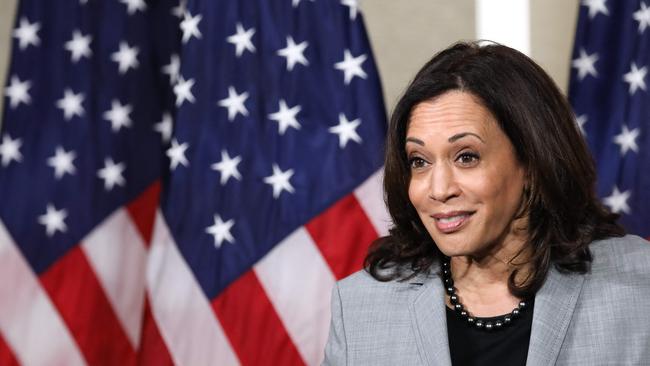
Harris is also a strong voice on what may be the Democrats’ most powerful electoral issue, abortion. She has led the administration’s message on abortion since the 2022 Supreme Court ruling that eliminated the right to the procedure, delivering a personal and legal argument as a former prosecutor.
Shaunna Thomas, co-founder and executive director of UltraViolet, an abortion rights group, said that “even as people are sitting with this major decision the president has just made, it’s clear that unity is building around a set of truths: Vice President Harris is the best positioned, the most qualified and can win.”
It is far from clear that Harris, as her party’s presidential nominee, would satisfy the many Americans who say they are looking for an alternative to Biden and Trump. Several surveys earlier this year and last year found her performing about the same as Biden when tested against Trump. Many surveys including a recent Wall Street Journal poll after the president’s disastrous late-June debate performance found voters view Harris just about as unfavourably as they view Biden.
Some Democrats privately expressed concerns about Harris’s place on the ticket, portraying her as a liability and arguing she didn’t have the same appeal as Biden. Many Democrats dismissed such attacks on the first Black woman to serve as vice president, calling them unfair and arguing that she is being held to a different standard than others, including Biden.
Harris has long made clear that if necessary, she is prepared to step up. The vice president said in an interview with the Journal earlier this year: “I am ready to serve. There’s no question about that.” Everyone who sees her on the job, Harris said, “walks away fully aware of my capacity to lead.”
In the weeks since Biden’s debate performance ignited concerns about his age and mental acuity, Harris has been a stalwart cheerleader for her boss. She has said in interviews and on the campaign trail that he remains up to the task of serving, declaring the election wouldn’t be decided by “one night in June.” But as criticisms mounted from donors and elected officials, it became increasingly clear that Biden couldn’t hold on.
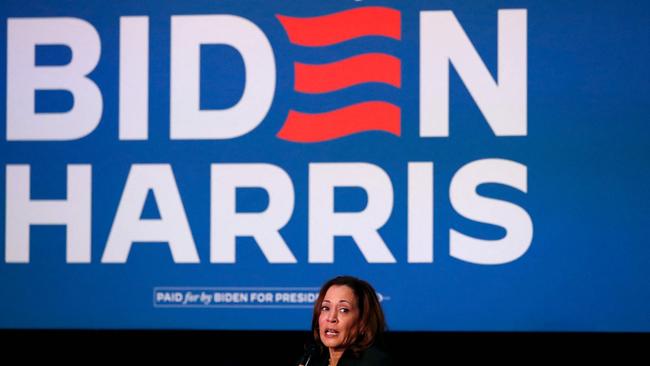
Since the debate, Republicans have accused Harris and other Democrats of covering up Biden’s decline.
“Kamala Harris – as well as every other Democrat in Washington, sat by and did NOTHING,” Trump senior advisers Chris LaCivita and Susie Wiles said in a Sunday statement. “They are all just as complicit as Biden is in the destruction of our once-great Nation, and they must all be thrown out of office.”
The White House and top aides have said Biden remains a sharp and vigorous leader.
The highest-ranking woman ever in the line of presidential succession, Harris grew up in Berkeley, Calif., and was raised by a single mother who immigrated from India at the age of 19.
She became the first woman to serve as California’s attorney general and was elected to the U.S. Senate in 2016, where she drew attention for her pointed questioning of then-judge Brett Kavanaugh during his contentious confirmation hearing. But she faltered in her bid for the 2020 Democratic nomination for president, struggling to frame a campaign message and dropping out before the primaries started.
During Harris’s early days in the White House she struggled to address issues such as border security and drew scrutiny over staff departures and criticism for her political skills.
But she has drawn praise in recent months as she has taken on more responsibility. In addition to abortion messaging, she has also beefed up her national-security portfolio, joining Biden on calls with Israeli Prime Minister Benjamin Netanyahu and pushing administration officials to articulate more empathy for Palestinians and to focus on a plan for post-war Gaza.
The Wall Street Journal



To join the conversation, please log in. Don't have an account? Register
Join the conversation, you are commenting as Logout